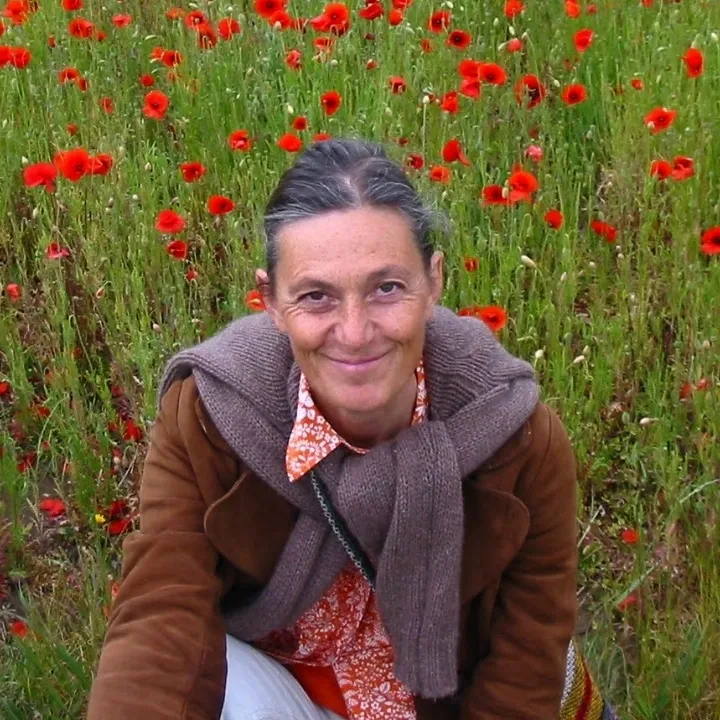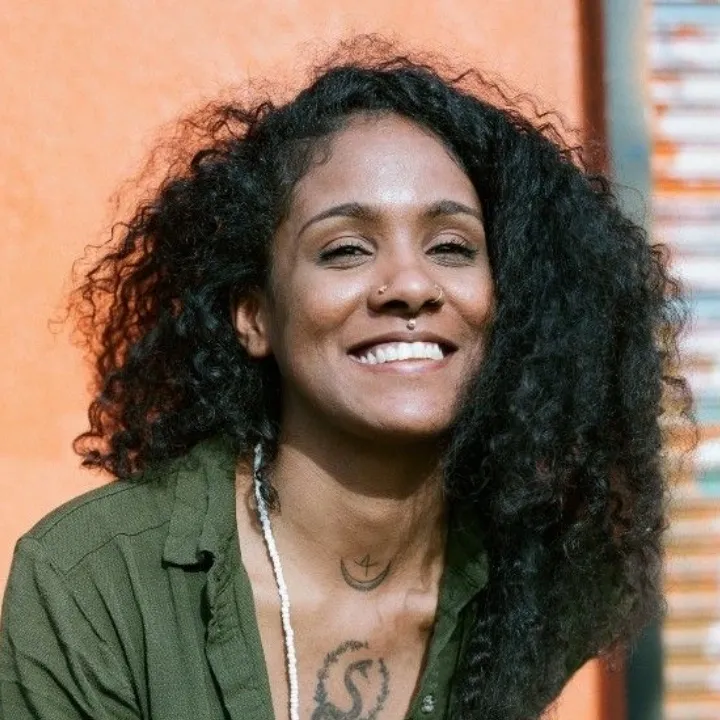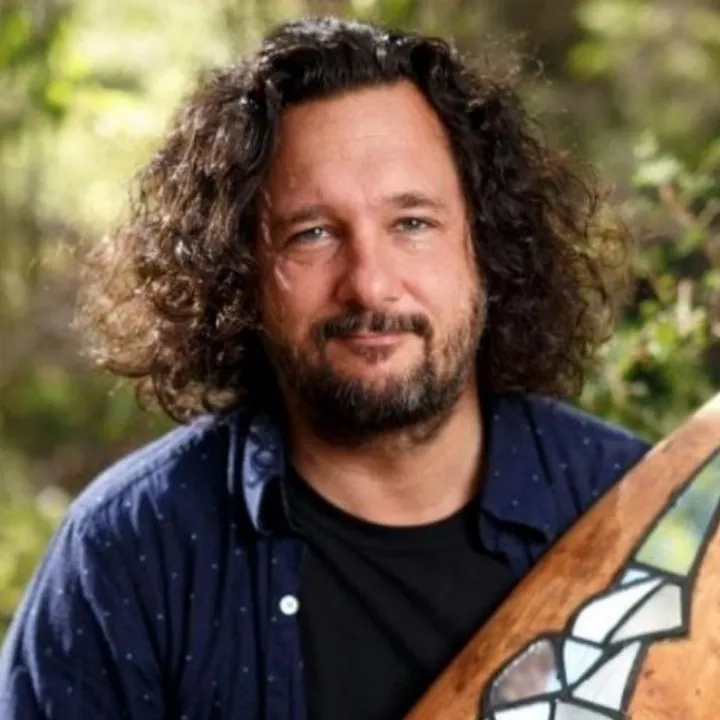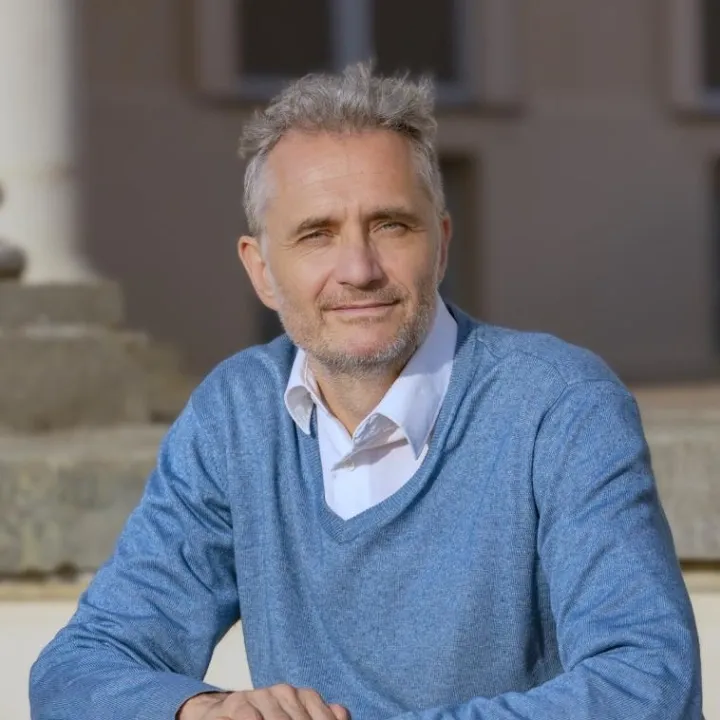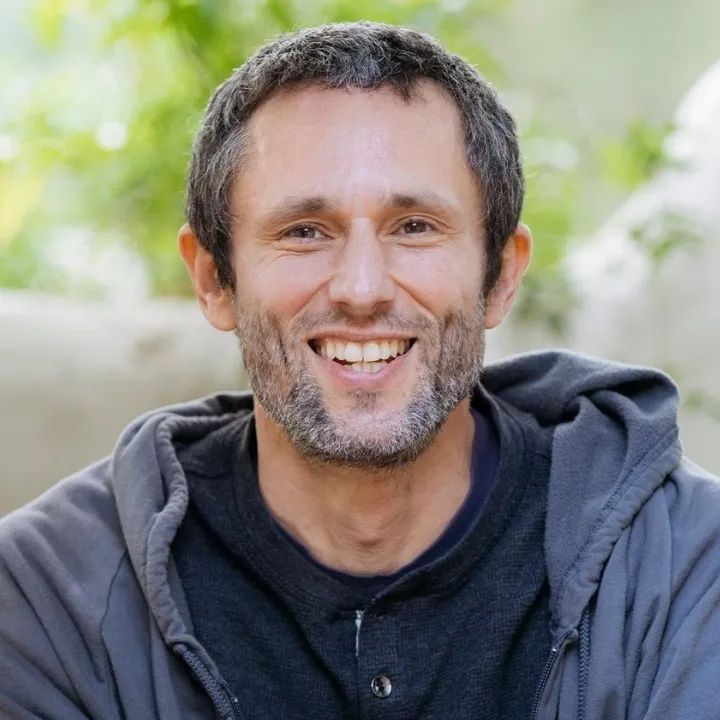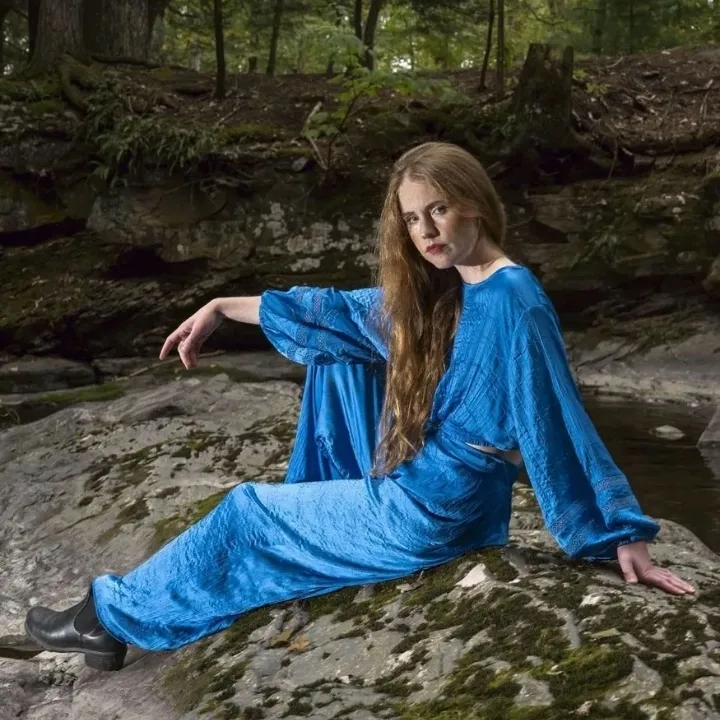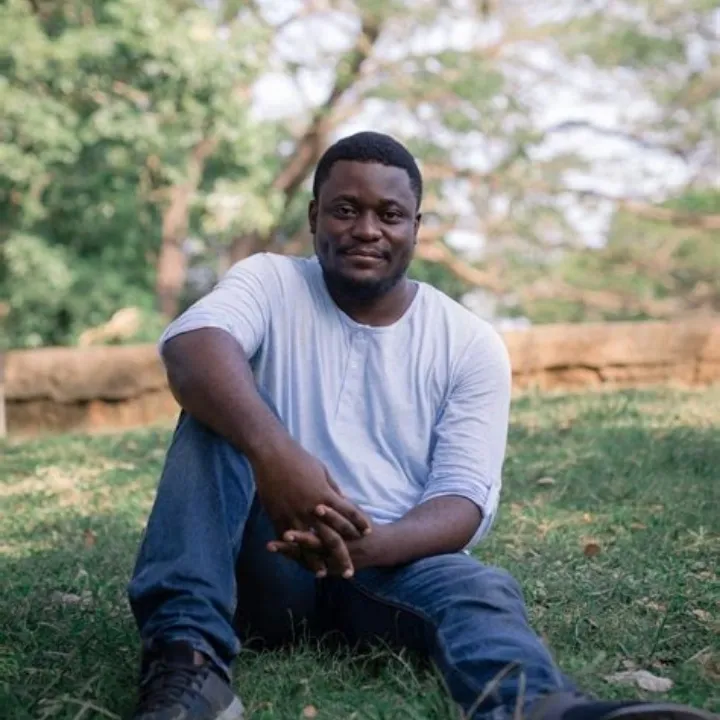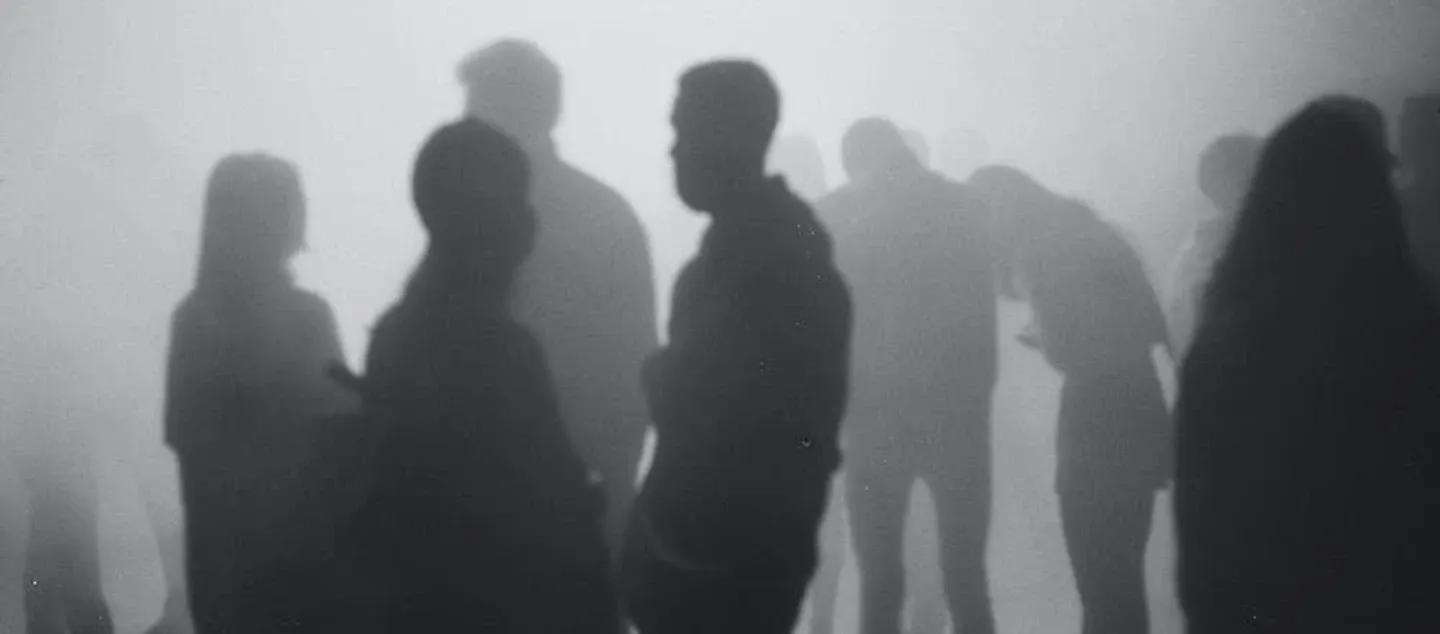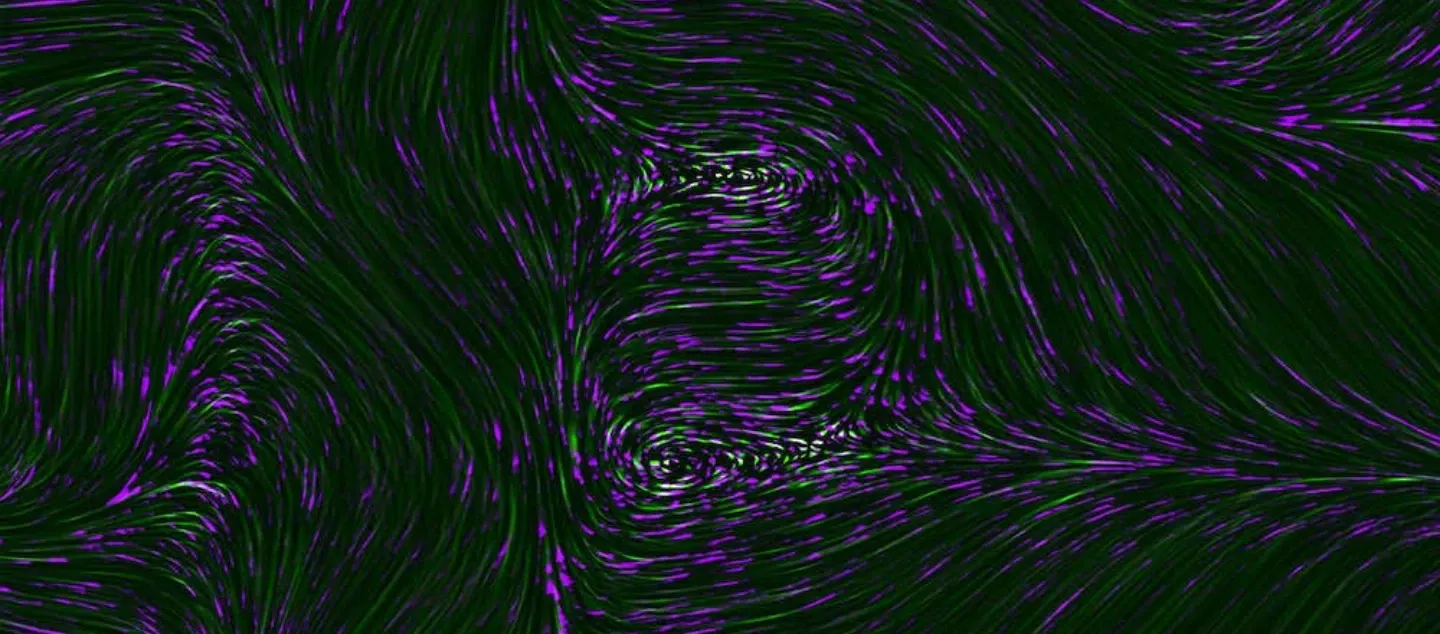Kinship: Being TogetherAn exploration into being together
Explore the vital role of community, fostering deep kinship and shared experiences that create a foundation for collective well-being and connection.
taught by Hannah Close
With Gavin Horn, Jeremy Lent and Charlotte Du Cann. We begin by framing our collective crises through the lens of relationship. We want to ask: how have our ways of relating created destruction? Where have we been separated from reality, each other, and our more-than-human kin? Why does the "crisis of rel...
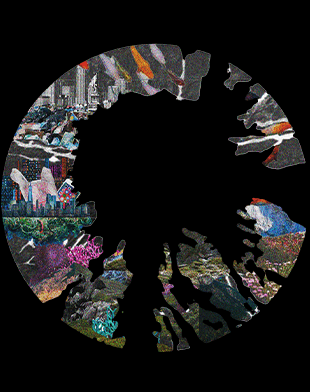
Chapter 1
Introduction by Hannah Close

Chapter 2
Gavin Van Horn: A Crisis of Belonging

Chapter 3
Q&A With Gavin Van Horn

Chapter 4
Jeremy Lent: Kinship & The Web of Meaning

Chapter 5
Q&A With Jeremy Lent

Chapter 6
Charlotte Du Cann: A Story of Kinship

Chapter 7
Q&A With Charlotte Du Cann
With Douglas Rushkoff, Bronte Velez and Justine Epstein. This module explores if relationships are inherently political. The speakers look at how certain relationships are conditional, and how relationships can both serve and extract. How are our relationships being influenced or controlled? We want to a...

Chapter 1
Douglas Rushkoff: Being Human is a Team Sport

Chapter 2
Q&A With Douglas Rushkoff

Chapter 3
brontë velez & Justine Epstein: Ritual Reparations & “Commemorative Justice”

Chapter 4
Q&A With brontë velez & Justine Epstein
With Gavin Van Horn, Tim Ingold and Tyson Yunkaporta. We look at the grounds on which relationships form. Where exactly does kinship arise? What is the importance of place in all of this? Why is context critical? We look at how the quality of the environment and the architecture of the spaces we inhabit ...

Chapter 1
Adah Parris: Belonging in the Cyborg Age

Chapter 2
Q&A With Adah Parris

Chapter 3
Gavin Van Horn: Place & Urban Space

Chapter 4
Q&A With Gavin Van Horn

Chapter 5
Tim Ingold: Kinship & Community - An Anthropological Perspective

Chapter 6
Q&A With Tim Ingold

Chapter 7
Tyson Yunkaporta: Indigenous Perspectives on Relational Ecosystems
With Minna Salami, Andreas Weber and Charles Eisenstein. We explore the role of the individual in relation to kinship. This module is unique in that there is a sense of "going against the grain". Many narratives around community and kinship have suggested that the notion of the individual is to blame for...

Chapter 1
Minna Salami: The Illusion of the Individual

Chapter 2
Q&A With Minna Salami

Chapter 3
Andreas Weber: The Paradox of the Individual - A Biopoetic Perspective

Chapter 4
Q&A With Andreas Weber

Chapter 5
Charles Eisenstein: Living With Ourselves, Together

Chapter 6
Q&A With Charles Eisenstein
With Nora Bateson, Caroline Duque and Vanessa Andreotti. We explore how community creates belonging and kinship, and how it can also fracture it (building on lessons learned from the previous module). What, exactly, comprises a community? How does kinship come into this? Can there be community without ki...

Chapter 1
Nora Bateson: Warm Data & The Ecology of Communities

Chapter 2
Q&A With Nora Bateson

Chapter 3
Carolina Duque & Vanessa Andreotti: Gesturing Towards Decolonial Futures

Chapter 4
Q&A With Carolina Duque & Vanessa Andreotti
With Andreas Weber, Tiokasin Ghosthorse amd Andy Letcher. We explore the more-than-human in our conceptions of kinship. We look at how the "new animism" may offer pathways towards healthier relationships (and a sense of deep belonging) with the sentient, living world. We explore how personhood, respect, a...

Chapter 1
Andreas Weber: Animism - Life as Reciprocity and Inwardness

Chapter 2
Q&A With Andreas Weber

Chapter 3
Tiokasin Ghosthorse: Contextualising Indigenous Languages for Troubled Times

Chapter 4
Q&A With Tiokasin Ghosthorse

Chapter 5
Andy Letcher: The Earth Beneath Our Feet: Finding Animism at Home

Chapter 6
Q&A With Andy Letcher
With Sophie Strand, Stephen Jenkinson and Charlotte Du Cann. We delve into the role of mythology, stories, art, and poetry in cultivating kinship. How do stories create/relate to belonging? How do notions of kinship appear in and influence the way we weave our cultural (& other) stories? What do the stori...

Chapter 1
Sophie Strand: Telling Our Way Home

Chapter 2
Q&A With Sophie Strand

Chapter 3
Stephen Jenkinson & Charlotte Du Cann: On Myth & Kinship
With Bayo Akomolafe, Gavin Van Horn and Rosanna Rippel. The end is near and we are asking, what next? How can we practise kinship in our own lives? How might we be able to help our communities, and those we don't belong to? We look at how we can reconceive kinship in the context of modernity. After all th...

Chapter 1
Bayo Akomolafe: One Never Makes the World Alone

Chapter 2
Q&A With Bayo Akomolafe

Chapter 3
Gavin Van Horn: Kinship is a Verb

Chapter 4
Q&A With Gavin Van Horn

Chapter 5
Closing session With Rosanna Rippel
The Kinship 2022 course is an exploration into being together in a time when being apart has fractured our relationship to self, other, and the more-than-human in ways that have left us painfully adrift. It is a timely collective inquiry into how community, relationality, and belonging can revitalise our sense of aliveness as creatures of and participants in this animate earth, and how such a renewal might influence our actions towards greater flourishing.
About Kinship
Our relationships are what enable us to step forth into being and enlivenment. Without relationship there is no thing, no body, no where, how, or why. So long as the relationships that sustain us here on earth are severed, so our sense of being here wanes. It is our relationships (to self, other, and earth) that offer us the greatest sense of belonging, and it is belonging that offers us the meaning we thrive on as a species.
Kinship is a way of relating that asks us to go beyond extracting value from the “other”. It is relationship for relationships sake, and for the sake of life itself. It is a form of relationship that acknowledges the deeper workings of reality by operating on the same principles as the very breath which keeps us alive: reciprocity, emergence, and sensuous awareness.
Restoring land without restoring relationship is an empty exercise. It is relationship that will endure and relationship that will sustain the restored land. - Robin Wall Kimmerer
About the course
We want to ask the questions: When we are not indigenous, _what are we? How can we belong? Why do we find it so challenging in the globalised consumerist world to practice healthy relationships and community? Can kinship arise through online relationships and those we form in demanding and fractured environments like cities? _
How do skewed power dynamics affect the quality of our relatedness? How might a sense of kinship help us navigate polarisation, and how might it encourage us to move beyond our deeply held views? How, ultimately, can kinship orient us towards greater individual and collective flourishing?
Whether or not you have unorthodox relationships with rocks, or find your wings in the world of words, we invite you to explore kinship with us, and reconceive relationship in the contexts we find ourselves in.
While Advaya seeks to hold a responsible container and work with facilitators and teachers who pledge to do the same, we do not hold a therapeutic status and therefore cannot be liable for any difficult emotions that may arise through your personal exploration of these topics. Topics will include sensitive material around colonisation, gender, race, oppression and so on. By joining this course, you agree that you will engage with the content at a pace that you are able to. Some of the things discussed may feel challenging for you - in many cases this can be a good sign! We invite you to participate with an open mind, and to build greater tolerance for views that you might not chime with ordinarily - this is to begin the journey of Kinship. It does not mean you have to agree with everything said, or that you should put yourself in a position you feel extremely uncomfortable with, but we do invite you to stretch your boundaries for the benefit of both yourself and others.
- 8 Modules
- 42 Sessions
- 21 Speakers
- Curated readings, resources and embodied practices
- Community discussion area
- Deepen your understanding of the role of relationships in creating healthier ways of being (both individually and collectively)
- Discover what kinship means in your own life & rediscover your sense of place/rootedness in the world (and self)
- Expand knowledge of different ways of relating to self, human, and more-than-human beings
- Re-evaluate the notion of the "other" through intersectional and "multi-perspectival" lenses
- Cultivate deeper awareness of nuance, complexity, and the value of a "both/and" perspective
- Gather tools and practices for deepening a multitude of relationships in your own life
- Shift your perception of kinship towards more expansive, unorthodox and/or radical possibilities relevant to the issues and contexts we find ourselves entangled in today
- Connect with others and open up the possibility for collaboration with a deeper understanding of how to relate authentically online
- Begin to question the line between introspection & "outrospection" (how does your individuality relate to the collective? and vice versa)
- Expand knowledge of useful terms and concepts, and be part of questioning what a new ecologically intregrous language might look like (or a language towards flourishing for all)
- Actively contribute and develop your ideas through consistent opportunities for feedback



